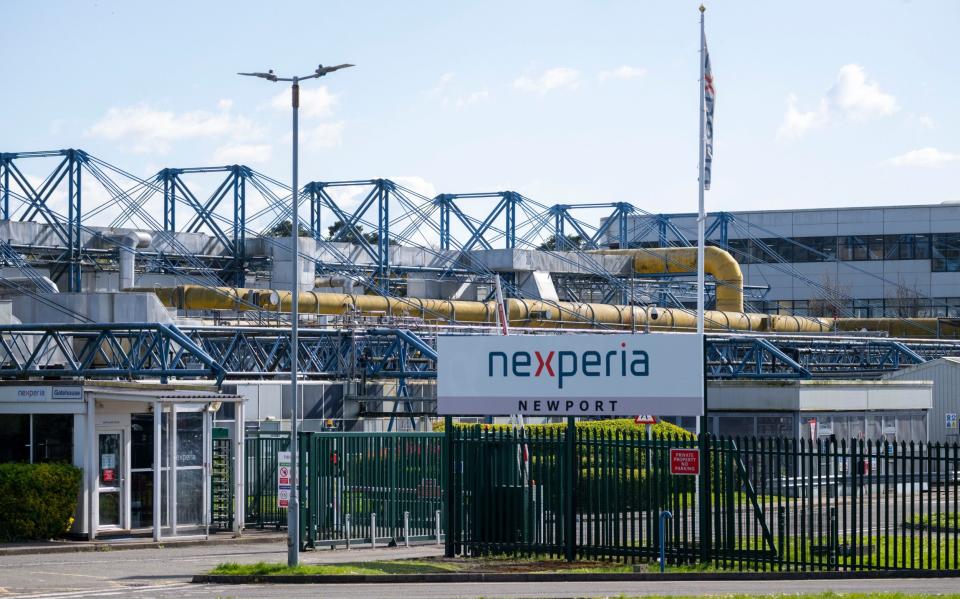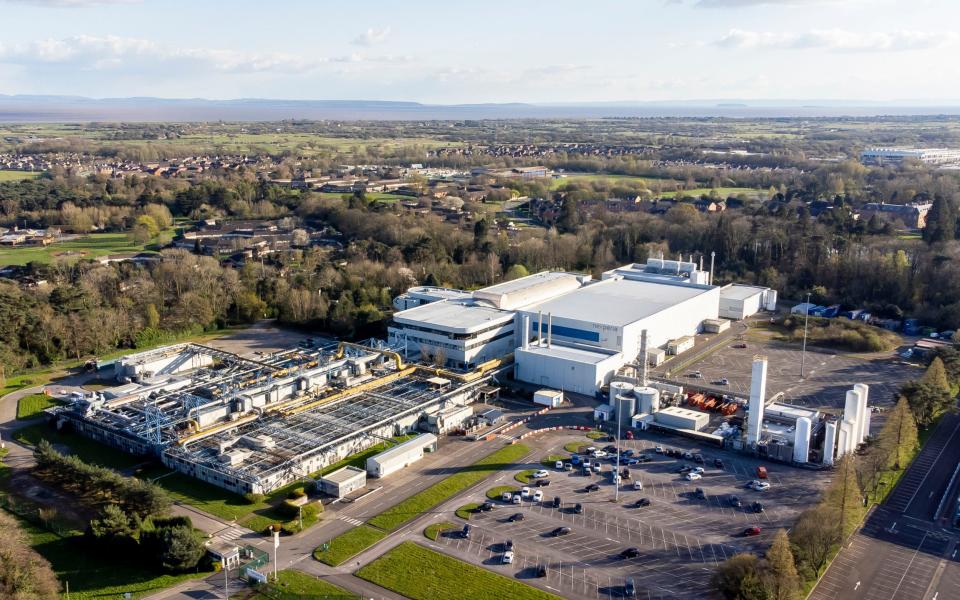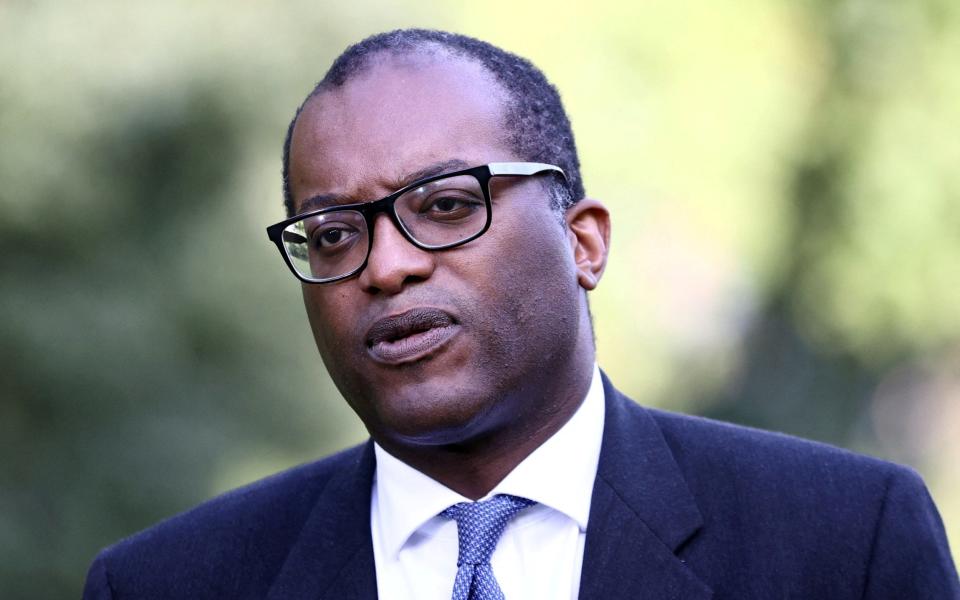How a Welsh microchip factory became a national security nightmare

If blame for the political row over the Chinese takeover of Britain’s biggest microchip factory was being dished out, one unexpected target might be Angela Merkel.
In 2011, the German chipmaking powerhouse Infineon acquired a heavily subsidised but bankrupt microchip facility in Dresden in a deal encouraged by Berlin.
Soon after the company would acquire an American business called International Rectifier that owned a manufacturing site in Newport, South Wales.
Infineon’s newly acquired Dresden factory made its British plant surplus to requirements and in 2017 it was sold to private investors with backing from the Welsh government and renamed Newport Wafer Fab.
MPs might now look to German enthusiasm for its semiconductor companies with envy as Britain struggles with an identity crisis over its own industry.
Last year, Newport Wafer Fab was sold again, this time to a Dutch company called Nexperia, a subsidiary of Wingtech, a Shanghai-based technology giant partly owned by the Chinese government.
Drew Nelson, the company’s chairman, had sought alternative funding, and the Welsh government had offered to invest. However, contractual obligations gave Nexperia the right to acquire the plant, which employs some 450 staff. The Dutch company paid about £63m to buy it last July.
In another time, that might have been the end of the story. Another British plant, Dynex, was sold to Chinese buyers without protest in 2008. Nexperia already has roots in Britain, running a British microchip plant near Manchester.
But increasing concerns about Chinese technology ambitions and a global chip shortage have combined to make the sale a political headache for the government. Nine months after the deal was completed, it still hangs in the balance.

Kwasi Kwarteng, the Business Secretary, has said the sale continues to be assessed, and insisted that the Government stands ready to reverse the takeover if it decides to.
“Their position on this is confused and it's contradictory, and that's the most charitable interpretation you can put on it,” says Lord David Alton, a crossbench peer who is one of seven MPs or peers to be sanctioned by China. “It beggars belief that you would sell your biggest manufacturer of microchips to a hostile state.”
Officials at the Department for Business ordered a security review into the sale before it was announced, but found no reason to block it. However, news of the deal prompted a backlash from hawkish MPs such as Sir Iain Duncan Smith, who said the Government had found itself in an “unholy mess” and Tom Tugendhat, the chair of the Foreign Affairs Committee.
When questioned by Mr Tugendhat in July, Boris Johnson revealed that he had asked Sir Stephen Lovegrove, the national security adviser, to “look again” at the issue.
However, he defended Chinese investment in Britain. “I do not want anti-China spirit to lead to our trying to pitchfork away every investment from China into this country. I have to say that I think that would be economically foolhardy,” the Prime Minister said.
Following accusations that no such review had taken place, business minister Lord Martin Callanan said this month that the deal was still being investigated.
Kwarteng has the power to refer it under new national security powers, which could mean the takeover being reversed, but time is running out.
January’s National Security and Investment Act allows ministers to block takeovers retroactively, but only for the first six months of its existence, giving the Government a deadline of early July.
Sophia Gaston of the British Foreign Policy Group think tank says the deal is complicated by Newport’s perilous position before the takeover, which could mean blocking it would require some level of taxpayer support for the factory.
“You couldn't have chosen a more difficult example for the very beginning of the new review structure for these kinds of acquisitions,” she says. “It’s an environment in which the government intervening in these sorts of things means it may well need to take a financial stake in that business to ensure its survival.”
A decision is believed to have been put on hold until next month, when a wider semiconductor strategy is published by the Department for Digital, Culture, Media and Sport.

Civil servants and ministers have been attempting to formulate a strategy for months, although planning is believed to have been hit by disagreements over what it should contain.
One civil servant says politicians have contracted “fab mania” (referring to the foundries, known as fabs, where microchips are made) and are ignoring more traditional British strengths such as design.
“There is a degree of FOMO. Other countries are talking about fabs, but it’s uneconomic here. You can’t onshore something so complex.”
Nonetheless, ministers are said to be attracted to the idea of more UK production. Both the EU and US are putting billions into encouraging manufacturers to set up domestically, although Johnson has said a similar UK investment is unlikely.
If the strategy raises concerns about foreign ownership of British semiconductor factories, though, allowing Newport Wafer Fab’s takeover may be politically impossible.
Cabinet divisions have now emerged over the matter, although the majority view is believed to be against blocking the deal. Officials argue that the company’s technology, based on a production process that was cutting edge in the 1990s, cannot be a national security issue.
One industry source disputes this idea. While the power-management chips that Newport Wafer Fab made relied on older processes, the company was also making strides in newer “compound” semiconductor technology that offer a host of benefits in areas such as electric vehicles.
“There's a lot of speculation that it was an old technology. That's a false characterisation,” the source says. “All power chip manufacturing is done at legacy node. What the fab was doing was developing a whole range of new advanced technologies in compound semiconductors, and some of that work was world-leading.”
Regardless of security concerns, microchip companies fear Nexperia’s ownership of the fab means some of that work is now lost. Newport Wafer Fab was part of publicly funded projects such as Socrates, a taxpayer-backed effort to improve domestic supplies of power chips for electric cars. Nexperia is not believed to be taking part in the next phase of the project.
A relatively small microchip factory in Wales would not ordinarily be the source of a national security clash, but a decision on the matter will have much wider consequences.
“Every one of these cases is going to be seen as setting a precedent,” says Gaston. “And so that's obviously heavy on the Government's mind.”

 Yahoo Finance
Yahoo Finance 